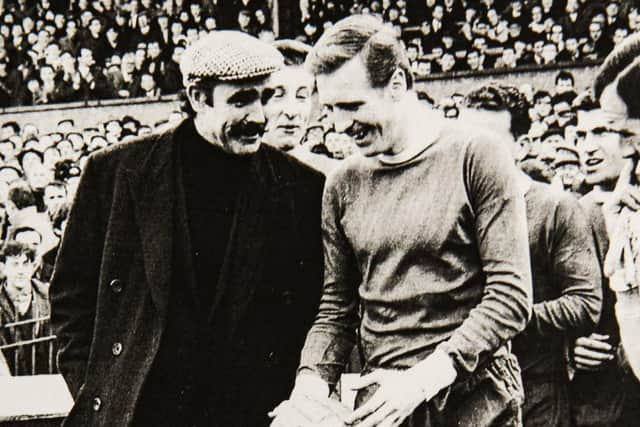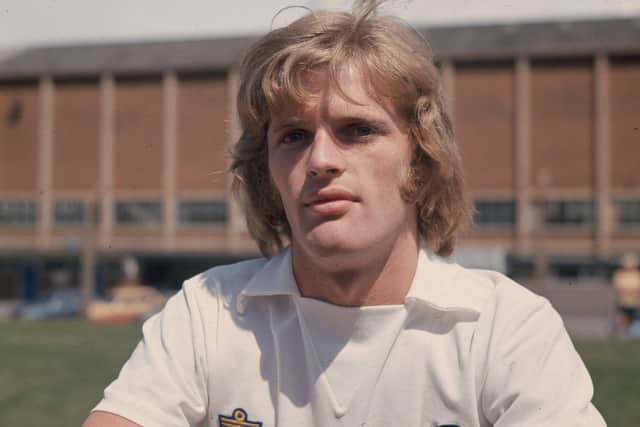Football head injuries: Why football must listen to Sir Alex Ferguson and drive change for stars of the past
A fine claim and undoubtedly true. Not one though that Barcelona can lay sole claim to.
At the Professional Footballers' Association (PFA) Scotland, we know that every football club is more than a pitch, bucket seats and floodlights.
Advertisement
Hide AdAdvertisement
Hide AdAll are more than sum of their parts. Our clubs are where we cheer, where we cry, where we see old friends and make new ones with something deep and true in common.


Every week we make and relive memories that mark our lives.
Our clubs are at the heart of their communities and, at their best, stand for the best of all of us. The most high-profile actions every year to combat racism and discrimination are taken in football.
Everton, famously, saw the great injustice being done to their fellow fans across Stanley Park and set aside their footballing differences to demand justice for the victims of Hillsborough.
Every single day clubs and fans are working with foodbanks doing incredible work across the country supporting the most vulnerable in their communities.


There are other demands for justice, for players too.
Almost every fan in the UK will have noticed the quiet, steady drumbeat of former players appearing in the media struggling with dementia and other forms of brain injuries.
The names of those hit stretch across football, across generations and across the UK.
Frank Kopel, Billy McNeil, Gordon McQueen, the Charlton brothers, Nobby Stiles, Jeff Astle, Alan Jarvis. The list is as long as it is heart-breaking.
We cannot pinpoint for any one of those players what caused their particular, individual struggles. What we do know is that former professional footballers are more than three times as likely as the man in the street to develop neurodegenerative illness.
Advertisement
Hide AdAdvertisement
Hide AdWe can even track it by position. If you were a centre half, you are almost five times more likely. A midfielder three times as likely and a goalkeeper has no increased likelihood of suffering.
The research that showed this, published in 2019 by Dr Willie Stewart of the University of Glasgow and his colleagues, is detailed, authoritative and demands action.
Michael Marra, a Labour MSP in the Scottish Parliament, is campaigning to see those former pros who need it given access to Industrial Injuries Benefits, to ease the financial hardship many of them are facing.
These players – our friends, colleagues and teammates – went to work, did their job and now many suffer for it.
It would be easy to look away. We want to remember these players in their prime, bringing joy to millions.
McNeil belongs in the eternal sunshine of Lisbon. McQueen, who passed away in just the past few days, should have been preserved in aspic as he rose above the Wembley penalty spot in 1977.
But we owe them better than this. We owe them and every player before and since an acknowledgment their efforts on our behalf may have left them more prone to brain injuries and neurodegenerative conditions.
Players who did not get rich cannot be left alone to struggle medically, personally and financially with only their loved ones for support.
Advertisement
Hide AdAdvertisement
Hide AdMarra’s campaign, supported by a host of the most famous names from across Scottish football, calls for access to those benefits.
It also calls for much needed further research into the topic and for government and the game to work closely together to address the outstanding questions that still exist.
We at the PFA Scotland are proud to lend our support to those demands and will continue to work with Marra and all other interested parties, as we have done for some years now.
It is clear there is a problem. The introduction of heading protocols in training and for younger players is welcome, but we must also look after those who have gone before.
Football has led the way so often in driving change, we have to do so again.
Tony Higgins is president of the Professional Footballers' Association Scotland
Comments
Want to join the conversation? Please or to comment on this article.